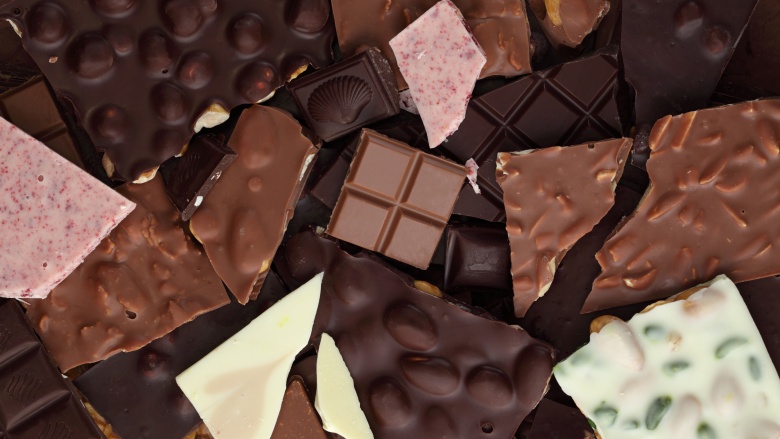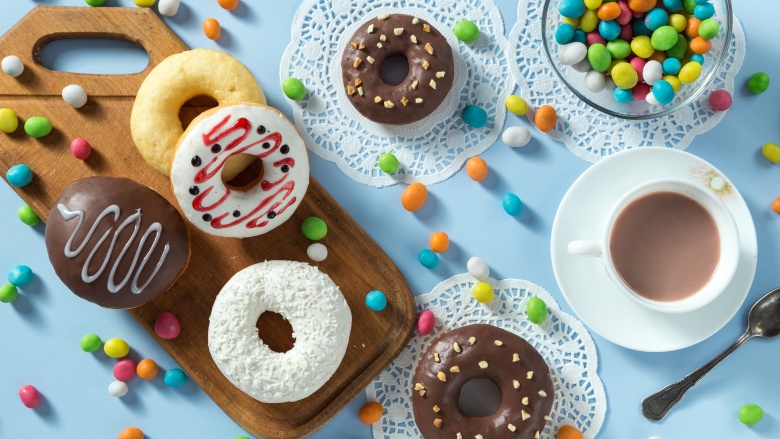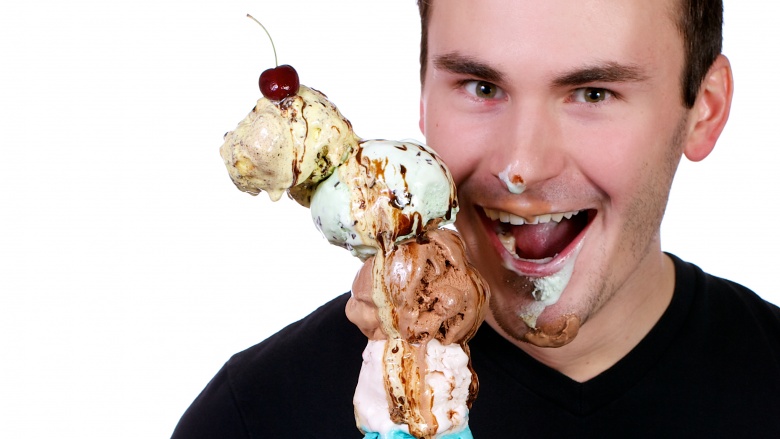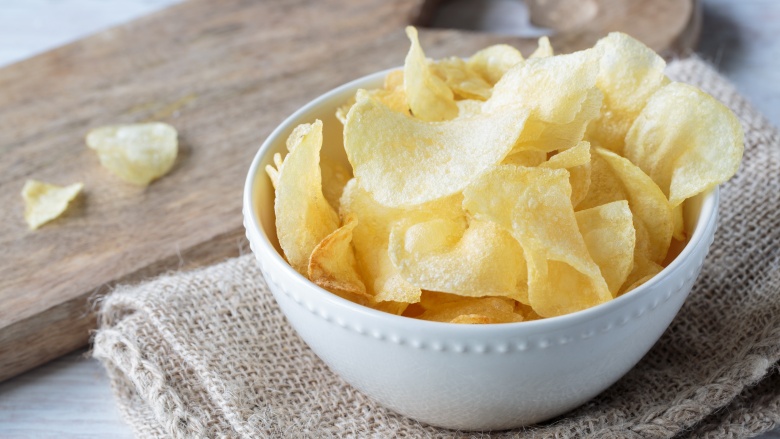The Real Reason You Crave Food That's Bad For You
You aren't weak and you don't lack willpower. Your brain is running the show when it comes to food cravings. The urge to eat handfuls of salty potato chips, half a box of chocolate chip cookies or an entire pan of creamy mac and cheese may start with an emotion, boredom, stress or nostalgia, but physiologic and chemical responses in the brain trigger the overwhelming impulse to eat. No one would probably spend much time thinking about food cravings if they were set off by foods like leafy greens, lean meats, and whole grains, but we are actually programmed to seek out high-calorie and fatty foods — a leftover survival mechanism from prehistoric times. We've evolved and no longer have the same needs to stay alive, but our brains still trigger those survival cravings.
Your brain
Three areas in the brain affect food cravings: the hippocampus, insula and caudate. Each plays a role in indexing your memories, and together they can create a response to food so intense it's almost impossible to resist. The main job of the hippocampus is to keep track of short- and long-term memories. So when you see an apple pie, for instance, you may think about the times your grandmother used to make pies and how much you loved eating them with her. Those feel-good memories awaken the insula, and translate that pie's heady aroma, sweet taste and rich flavor into pleasurable emotions like delight, excitement, and love. Then the caudate steps in and releases dopamine, a feel-good hormone that rewards you for eating that pie and encourages you to keep eating more.
Stress
High-pressured situations, such as studying for an exam, carrying out complex tasks, and career, family, or financial challenges are some of the factors that bring on stress. The brain signals for the body to react with adrenaline, which gets your body all hyped up. To calm back down and restore energy that adrenaline rush spent, the brain signals for the release of cortisol, another hormone, which can trigger a desire for sugar and carbs. Reaching for (and devouring) that entire pint of ice cream isn't the best answer, of course, but it is a natural, biological response.
Weather
For about 20 percent of the US population, the winter months can bring on some level of SAD (Seasonal Affective Disorder). SAD, sometimes called the winter blues, is a type of depression that can lead to an increase in cravings for sweets and carbohydrates, due to a dip in serotonin and melatonin levels. Depressed or not, the desire to eat more carbs and sweets in winter affects most people to some extent. It may be an inherited, protective instinct in response to the colder weather, but it also could be more related to a season that is jam-packed with food memories and experiences.
When you crave chocolate
Have a yearning for chocolate? That's not surprising — it's a commonly-craved food, both because of the feel-good hormones eating it releases, and just because it tastes so darn good. Give in a little. Chocolate gets a bad reputation because there's a lot of unhealthy chocolate candy out there, devoid of any nutritional value and full of fat and sugar. But, chocolate can actually be good for you. Chocolate is made from cacao beans and is packed with antioxidants that have been shown to aid in reducing risk of cardiovascular disease and cancer. Chocolate is also high in magnesium, an important mineral for your health. Dark chocolates offer more intense flavor and less sugar. Go for bars with 70 percent cocoa (the remaining 30 percent is mostly sugar); there are some good domestic and imported options to choose from.
When you crave candy and sweets
Dig into a bag of sugary candies or a piece of frosted cake and before you realize it, you're going back for more. The trick to stopping is to find an alternative sweet tooth soother. We are actually hard-wired to seek out sugar for its high energy output — a primitive instinct for survival, and one reason we crave sugar. Findings show artificial sweeteners don't satisfy in the same way natural sugar does, so go for a sweet piece of fruit like an apple, grapes or fresh pineapple as an alternative. Choose fruit with a high fiber content to help you feel full and satisfied.
When you crave creamy foods
You craving for creamy foods like ice cream, milk shakes, and melty cheese dishes could be your body remembering the calming affects dairy has on your brain. Milk and other dairy products are high in tryptophan, which triggers the release of serotonin and choline. These two chemicals have soothing effects and counteract stress, which is why mac and cheese is the ultimate comfort food. Dairy products are a good source of calcium, but they can be high in fat, so moderation makes sense. If you need a creamy treat, look to low-fat yogurt (avoid those with a lot of added sugar), ripe bananas or silken tofu for an added punch of creaminess and less fat. Add a banana to a milk shake, or try tofu for a rich (but still healthy) macaroni and cheese dish.
When you crave salty foods
Salt enhances the flavor of food making it all the more tasty. Craving salt may be the result of a long ago instinctual need to make sure the body's sodium needs were met. That's seldom a concern today. In fact, some people need to monitor and reduce sodium intake to protect against cardiovascular disease. If you have a salt craving, indulge in something healthier that will still hit the spot, like pistachios, sunflower seeds or cheese.







